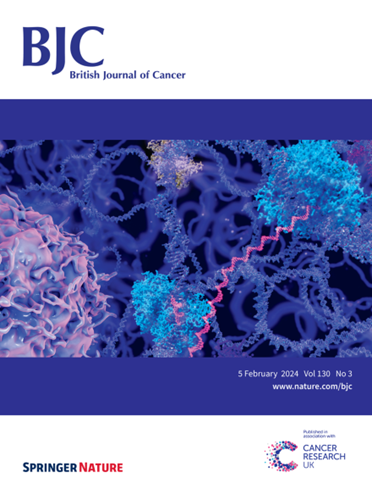声动力疗法对癌症的缺席效应。
IF 6.4
1区 医学
Q1 ONCOLOGY
引用次数: 0
摘要
腹水效应是指对原发肿瘤进行局部治疗后,远端转移瘤生长消退的现象。有趣的是,利用声动力疗法(SDT)进行的各种临床前研究都报告了显著的缺席效应,但其机理在很大程度上仍然是个谜。声动力疗法是一种新兴的非侵入性癌症治疗方法,它使用聚焦超声(FUS)和声敏化剂来诱导肿瘤细胞死亡。为了扩大我们对 SDT 消亡效应的了解,我们总结了临床前研究,这些研究发现 SDT 在各种癌症模型中诱导消亡反应,并采用了与纳米材料、微气泡、化疗和免疫检查点抑制剂的不同组合策略。此外,我们还阐明了 SDT 诱导原发性和转移性肿瘤细胞死亡的分子和免疫学机制,以及不同声纳增敏剂的作用和功效。值得注意的是,观察到的脱落效应强调了继续研究 SDT 诱导的 "疫苗效应 "作为增强全身抗肿瘤免疫力和对抗转移性疾病的潜在策略的必要性。首例 SDT 人体临床试验的结果令人翘首以待,希望能进一步评估 SDT 的安全性和有效性,为今后专门探索将 SDT 诱导的脱落效应转化为临床实践的可能性的研究铺平道路。本文章由计算机程序翻译,如有差异,请以英文原文为准。

The abscopal effects of sonodynamic therapy in cancer
The abscopal effect is a phenomenon wherein localised therapy on the primary tumour leads to regression of distal metastatic growths. Interestingly, various pre-clinical studies utilising sonodynamic therapy (SDT) have reported significant abscopal effects, however, the mechanism remains largely enigmatic. SDT is an emerging non-invasive cancer treatment that uses focussed ultrasound (FUS) and a sonosensitiser to induce tumour cell death. To expand our understanding of abscopal effects of SDT, we have summarised the preclinical studies that have found SDT-induced abscopal responses across various cancer models, using diverse combination strategies with nanomaterials, microbubbles, chemotherapy, and immune checkpoint inhibitors. Additionally, we shed light on the molecular and immunological mechanisms underpinning SDT-induced primary and metastatic tumour cell death, as well as the role and efficacy of different sonosensitisers. Notably, the observed abscopal effects underscore the need for continued investigation into the SDT-induced ‘vaccine-effect’ as a potential strategy for enhancing systemic anti-tumour immunity and combating metastatic disease. The results of the first SDT human clinical trials are much awaited and are hoped to enable the further evaluation of the safety and efficacy of SDT, paving the way for future studies specifically designed to explore the potential of translating SDT-induced abscopal effects into clinical reality.
求助全文
通过发布文献求助,成功后即可免费获取论文全文。
去求助
来源期刊

British Journal of Cancer
医学-肿瘤学
CiteScore
15.10
自引率
1.10%
发文量
383
审稿时长
6 months
期刊介绍:
The British Journal of Cancer is one of the most-cited general cancer journals, publishing significant advances in translational and clinical cancer research.It also publishes high-quality reviews and thought-provoking comment on all aspects of cancer prevention,diagnosis and treatment.
 求助内容:
求助内容: 应助结果提醒方式:
应助结果提醒方式:


